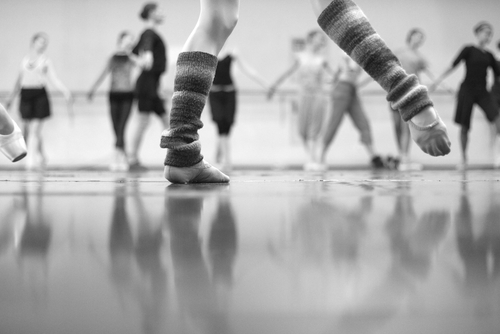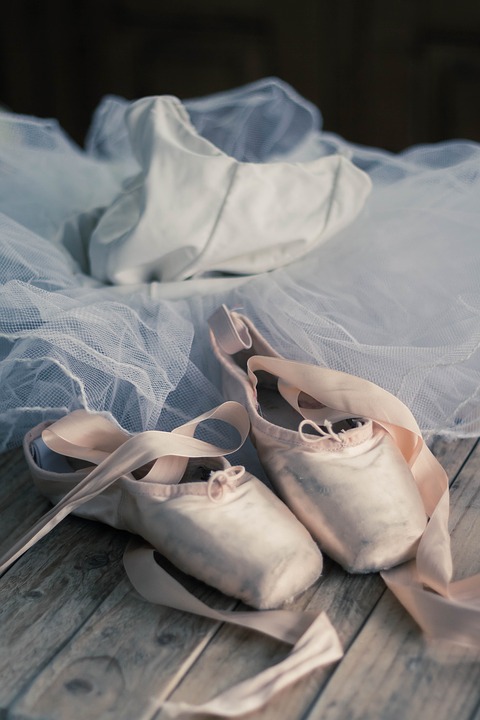Dance Talk
Our dance season never ends. Learn dance tips from the best.
Post Performance Recovery Plan

by Audrey Moore

As a dancer, you're an athlete and you need to take great care of your body, as a result. That's especially important after a big performance. You might simply want to head to the cast party and then return to class the next morning. But make sure you have a proper post-show recovery plan in place so your body gets what it needs to heal and regain strength. You'll feel better in the long run. So grab your ballet or jazz shoes and follow these tips for recovering after a performance:
Get hydrated
Directly after your performance, make sure you get hydrated. If your body is dehydrated, it won't function well and you won't feel good. Some signs you're dehydrated include feeling dizzy or nauseous, having muscle cramps or dry mouth, and a lack of sweating. You can take a sports drink afterward to replenish calories, potassium and electrolytes. Just be wise about the ones you choose; that means no high calorie drinks with loads of sugar. Also, make sure you consume plenty of water, as well.
Get dry clothes on

You heat up and sweat a lot on the stage. But once your body stops moving, you're going to notice yourself getting cold and clammy. Avoid the chills by changing into warm, soft clothes after a big performance. This includes changing into comfortable footwear, like these combat boots for girls, to give your feet plenty of support and keep them from swelling.
Ice your feet, then put them up
It sounds unappealing. But icing your body, and especially your feet, will work wonders for inflammation. Once you have swelling in the first place, it's harder to get rid of and it can actually cause damage. So as soon as possible after your performance, start icing.
Use the power of gravity, too, to combat inflammation; for instance, laying down with your feet up on a stack of pillows is a great way to fight inflammation. Ideally, you should keep your feet up for anywhere from 15 to 25 minutes. So find your favorite TV show, sit back and relax.
Lightly massage your legs and feet
Lightly massaging your feet, calves and quads is a good way to keep them loose and help during the recovery process. What's more is that, according to the American Massage Therapy Association (AMTA), massage can also help to improve performance, lessen pain, prevent injury, and shorten time to recover.
Consume calories
Whether or not you're ravenous after a performance, it's important to replace lost calories. So make sure you have a healthy snack or meal post-show. This will help your body to repair and recover after a strenuous activity by feeding it essential nutrients. Consider a meal of unrefined carbohydrates, plenty of protein and healthy fats. What to avoid? Eating a lot of processed food or drinking sugary drinks. And make sure you refuel between a half hour to two hours post-show. This is the best window of time when your body will be more likely to absorb nutrients and store them for the next day's rehearsal.
Care for any damage
If you were injured during a performance, even if it's simply a blister or strain in your muscles, then make sure you care for that injury. Seek medical attention if you need to. Don't put it off or assume it will resolve itself and dance through the pain. If you have a serious injury, it will get worse if you don't get the appropriate treatment for it.
Just make an appearance at the cast party...then take your jazz shoes home
You've definitely earned the right to celebrate. But don't overdo it with a body that's recovering from a performance. Even if you feel good, it's likely due to the adrenaline still coursing through your system. And staying out too late will make you feel worse in the long run. So don't push it.
Go easy on yourself

Did you make a mistake during the performance? Or didn't deliver as well as you would have liked in certain areas of the routine? There will be plenty of time for analysis later. But right after a performance isn't a good time to do it. Your brain needs a break. Instead, save focusing on what went wrong and how you can fix it for tomorrow.
Go to sleep
More than anything, your body needs rest. Make sure you go to bed as early as possible and sleep for eight or nine hours. That can be hard when you're on an adrenaline high. So come home, relax, and make something to eat. You'll start to wind down and will eventually fall asleep. Before you do, though, place a bottle of water and a snack by your bedside in case you wake up hungry or thirsty.
Stay active in the days that follow
If you don't have rehearsal the day after your performance, still stay active. Go to the gym, go for a walk, or take a dip in the pool. This will help your body continue to flush out any muscle toxins and deal with negative post-performance affects.

Follow Us
Follow Us online, join our conversations, engage with our teams around the world!